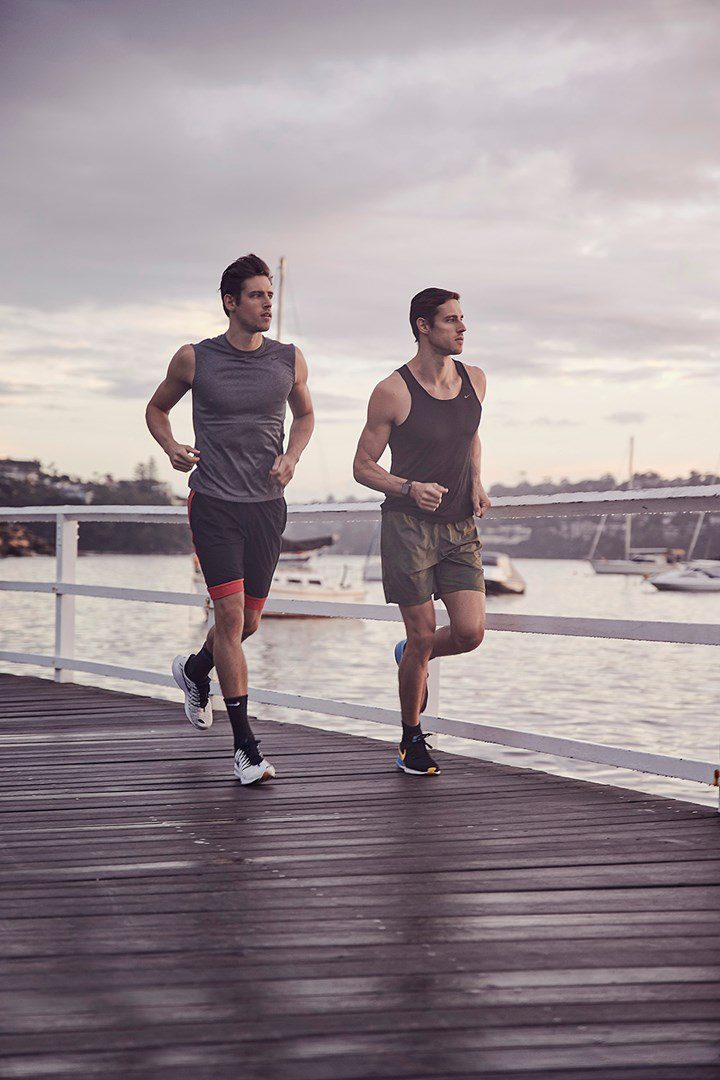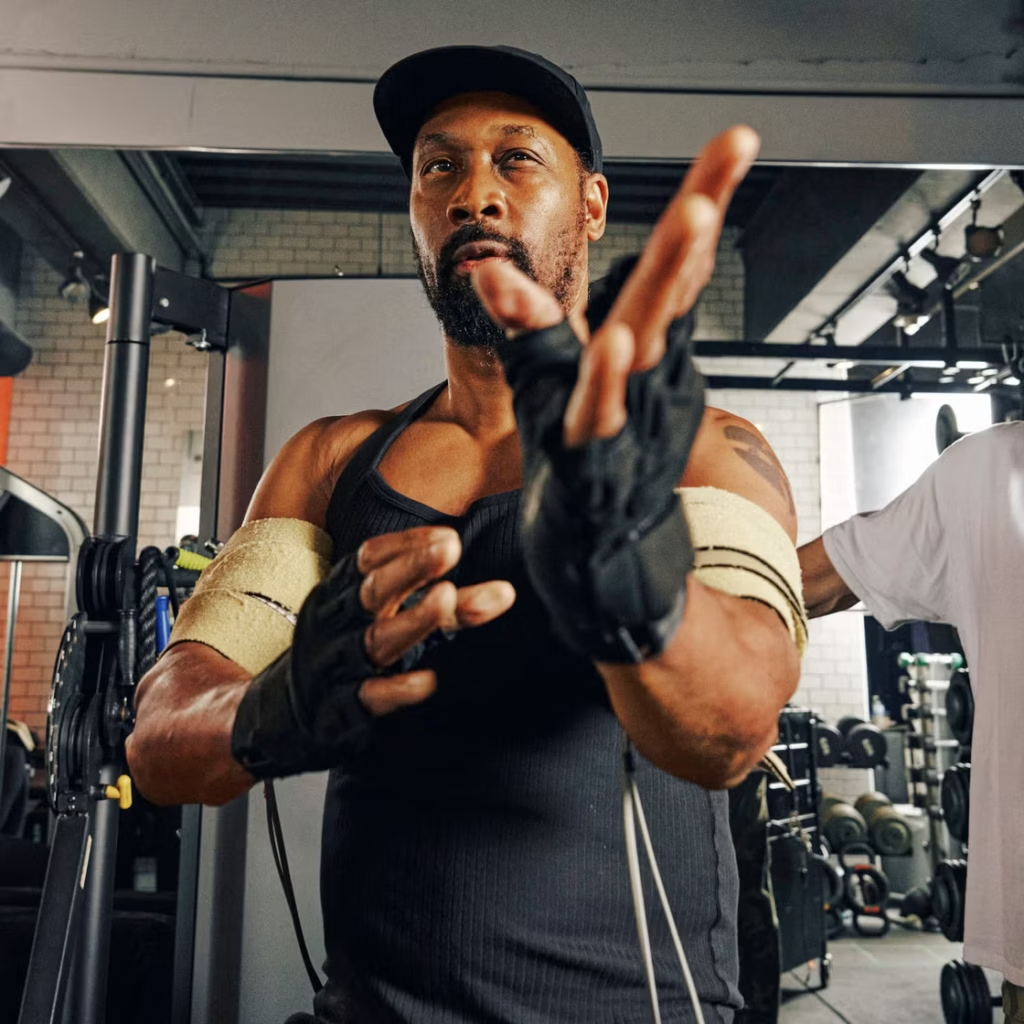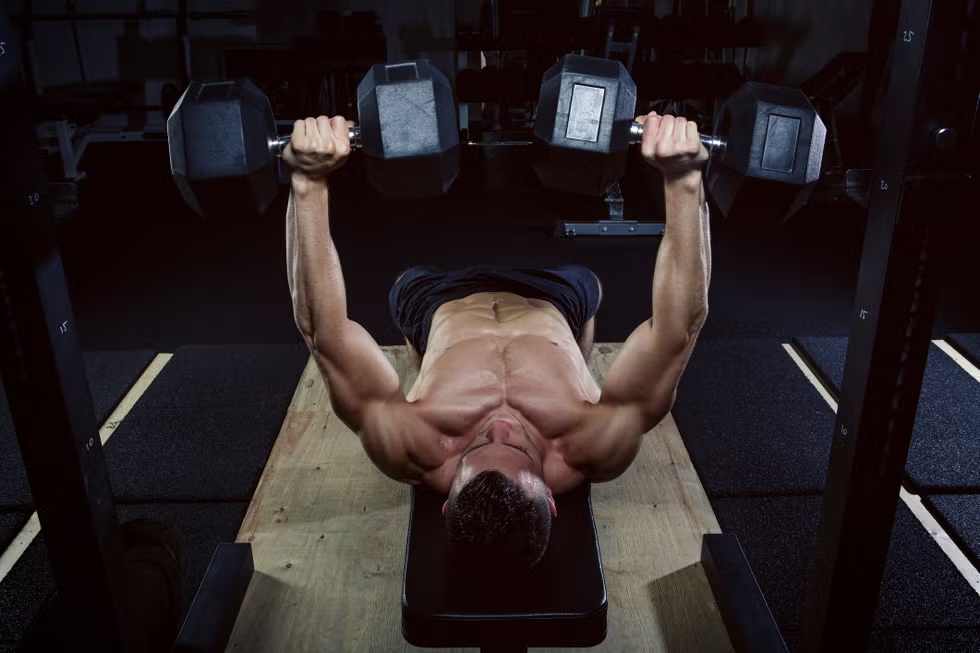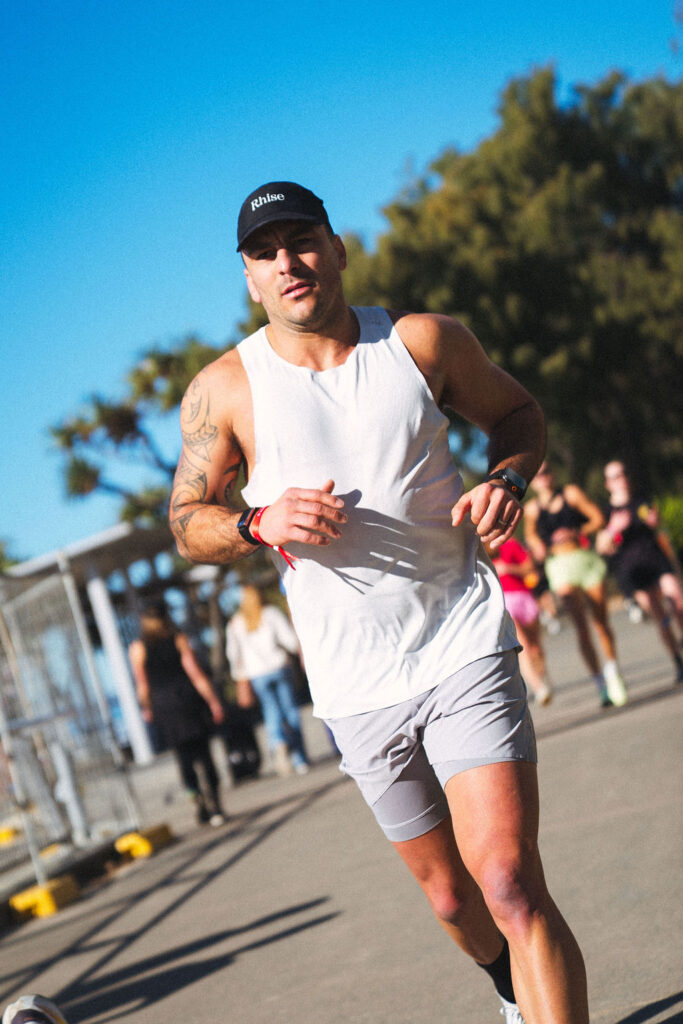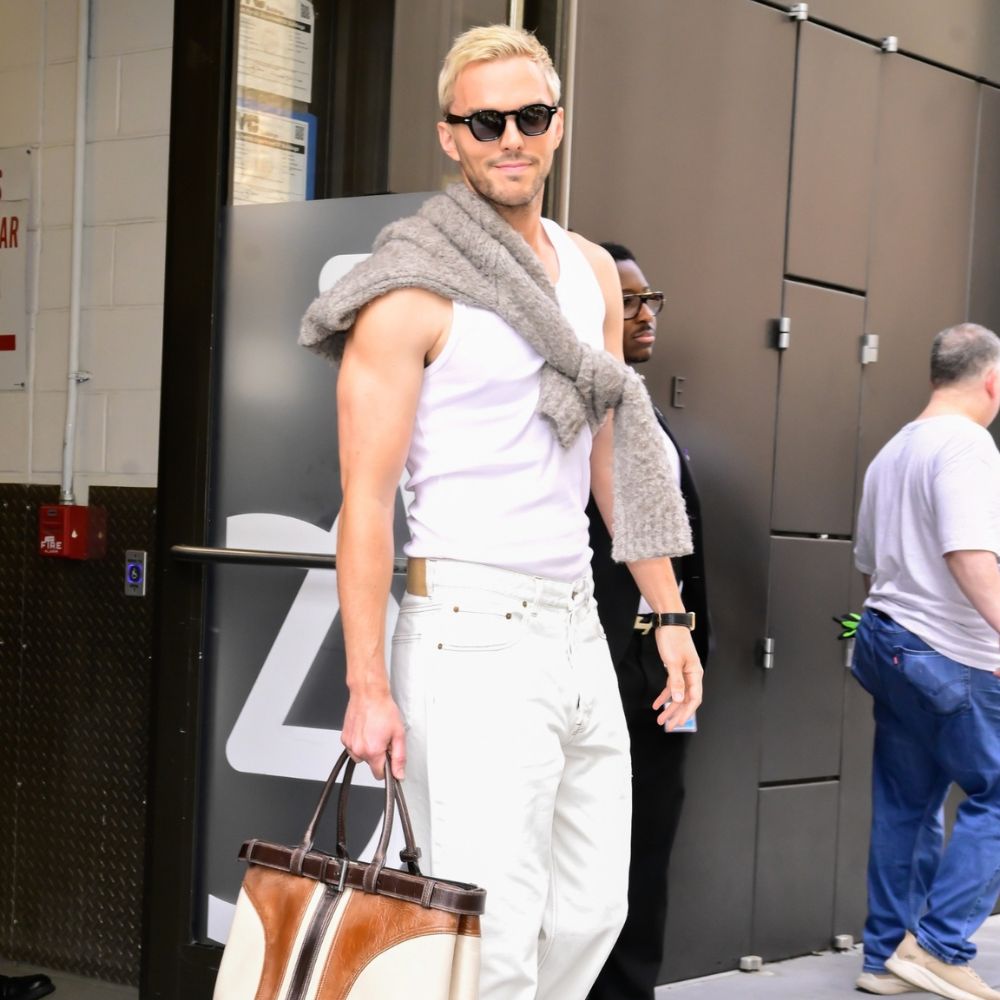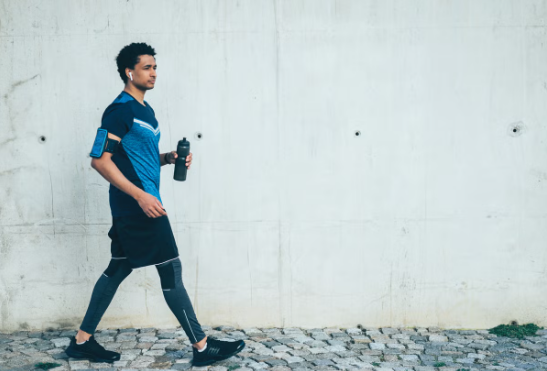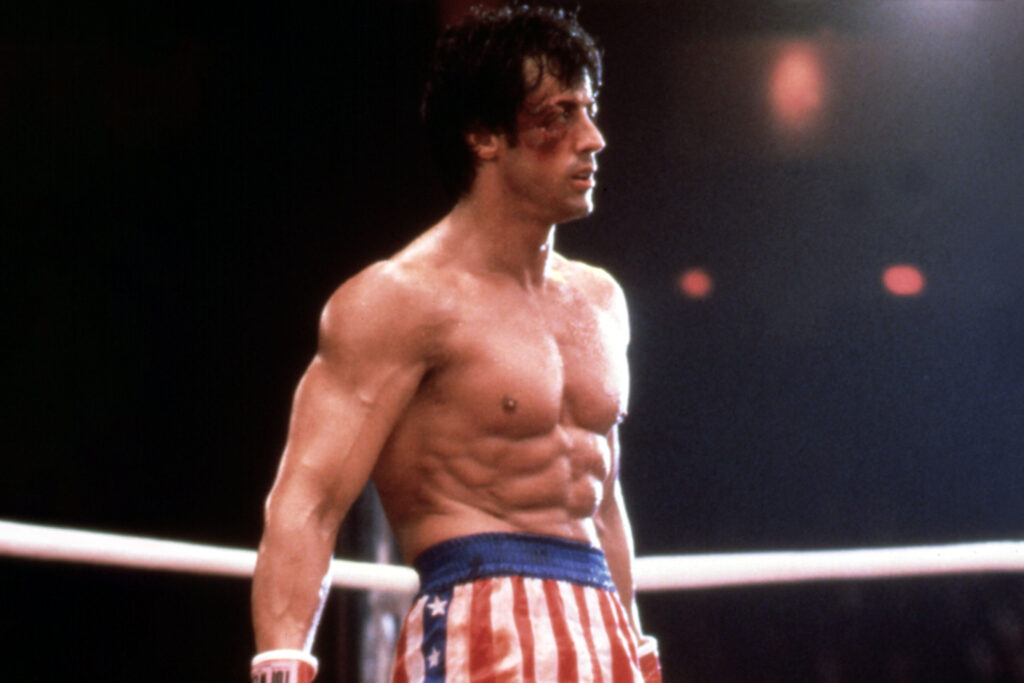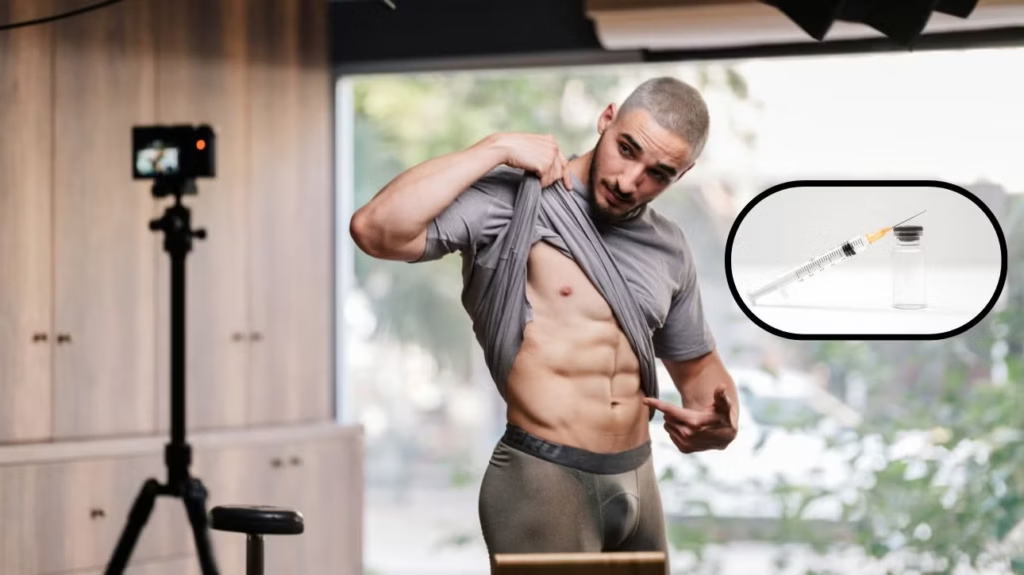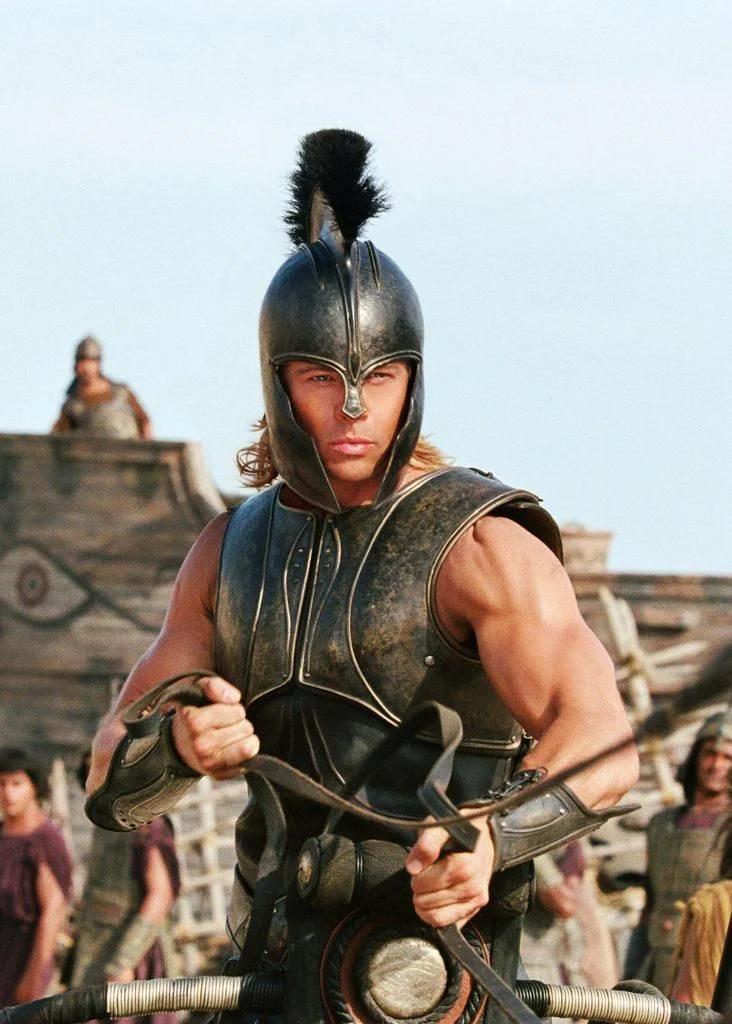Jordan and Zac Stenmark rose to fame as international supermodels, the go-to clothes horses for some of the biggest fashion houses on the planet. But years of travel, training and hard work have led them down a path of wellness discovery.
After launching two health businesses in the past 12 months, Stenmark Fit and Dreamers, they’re a prime example of just how far an insatiable thirst for knowledge can take you.
Health is synonymous with the super. We’ve got superfoods, superheroes and supersets. It makes perfect sense, then, that
the next giant leap forward in health-related innovation is coming from Australia’s own supermodel duo, Jordan and Zac Stenmark.
Over the course of the past decade, the Stenmark twins, 29, have dominated the international men’s fashion scene. But it’s what they’ve been doing in their ‘spare’ time in the past five years specifically that has brought us together at sunrise on a Sydney Harbour beach.
As a result of a life spent in the air, jetting between LA, Milan and New York, the genetically blessed duo have spent their downtime in transit seeking to hack their health in any way they can. To stay fit, to look fresh and to perform at their peak (they’re former AFL players and currently seeking to chase down a Masters swimming world record). And the years of research have clearly paid off.
Fresh off the heels of the 2020 launch of their own wellness platform, Stenmark Fit, the twins are now expanding their health empire with the launch of Dreamers, a neuroscience-led lens technology and eyewear that seeks to improve sleep by blocking pesky blue and green light.
And no, Jordan and Zac aren’t just celebrities who have lent their name to a gimmick. Such is their knowledge and expertise, spending time with them makes me question my own credentials as a health journalist.
Every burpee is followed by a book recommendation, every swim preceded with a journal reference and every soft-sand sprint accompanied by the soothing tones of scientific methodology. They’re book smart and worldly, a lethal combination when it comes to cementing themselves at the top of the health pyramid.
With their wings clipped for the time being, the Stenmarks are dedicating their time to improving the lives of their fans by sharing this wealth of knowledge and access to global health experts. You too, can supercharge your health the supermodel way, starting with quite possibly the easiest hack to master: a good night’s sleep.
MH: How did you get started in health and fitness?
Zac: We were playing footy [AFL] with GWS, studying economics at Sydney University and our modeling careers were kicking off all at the same time, so health and fitness was a huge part of our lives.
For us, it was not only about physical performance, it was about feeling really well, especially with all the travel we were doing on a regular basis. So we began researching all these different modalities in health and how we could find the most sustainable ways to be healthy, not just more fad diets.
Jordan: Zac does a lot of the medical reading. It’s like how we came into the world. He’s my test dummy. If he does all right, I’ll go next.
From the outside, you live the model lifestyle. Did you ever face any adversity when it comes to your health?
Zac: I had this issue with my hip that got really serious; it was basically like arthritis in the hips. I remember there were times when Jordan would have to carry me off the plane I was in so much pain. So here I was, a 20-year-old guy struggling with this health issue that was keeping me from training already, so I needed to learn how to manage the inflammation. [Doctors] wanted me to take these really strong anti-inflammatories, and I wanted to find a natural way to manage it.
So that was one of the big factors that took me down this path of trying to understand how to really take care of our bodies and have really good quality health.
And that led to your health platform, Stenmark Fit, in 2020? How has that been received since launch?
Jordan: It’s had an amazing response. One of the big things we’ve seen through Stenmark Fit is people saying, “I love that this is a holistic approach to health, and I love the fact that as much as I’m looking to get an aesthetic result, I’m also looking to improve my lifestyle”. And
that was something that we really set out to do. And the way that we’ve tried to live our lives.
With the human body there’s not one size fits all for every single person and that’s another important factor for us. There are methodologies in health that work for a lot of people, but it’s not always going to be this cookie-cutter approach. But there are foundations that you can lay that everyone can apply to their lives.
Given your occupation, do you find that a lot of people have come to Stenmark Fit driven by aesthetics, in search of a supermodel body?
Jordan: I think people have definitely come looking for, let’s say, abs, but walked away with a healthier lifestyle. [Abs] are a byproduct of a healthier body. We know that the aesthetics come with actually taking care of your body.
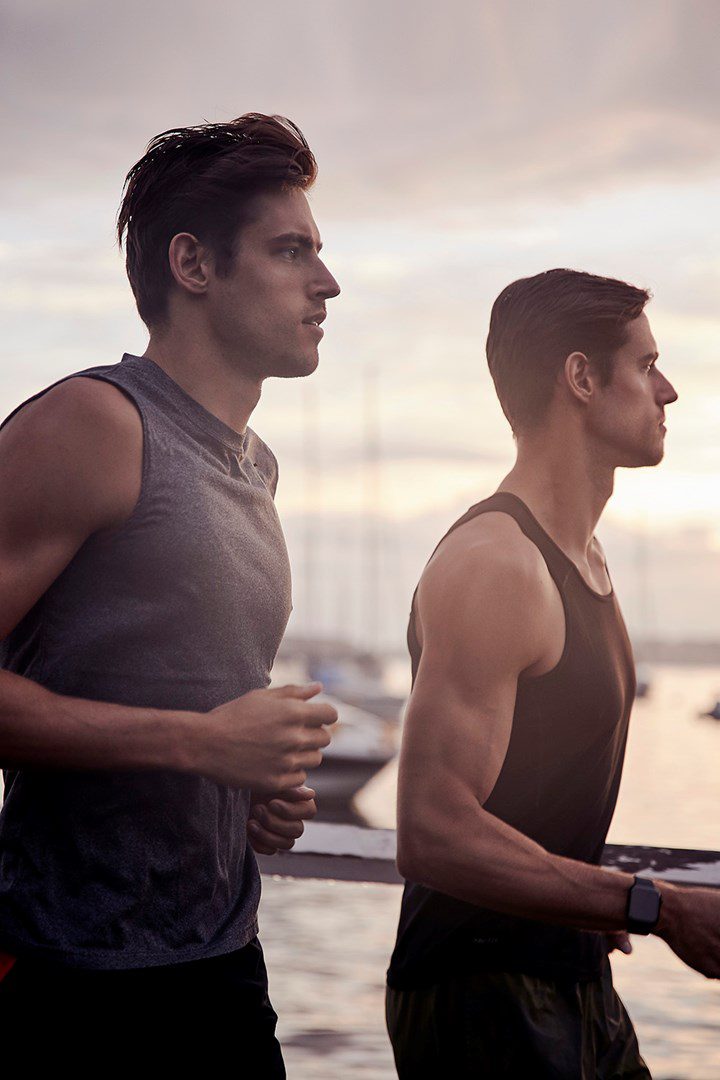
As supermodels, you could pretty much take your pick of any health expert, nutrition-wise, fitness-wise, sleep-wise, science-wise. How do you select who you want to be part of your health empire?
Zac: There needs to be very credible science behind the way they think and a very balanced approach as well. You can’t be so extreme and over the top that goals or concepts are unachievable. Then we look at the lifestyle and we go, is it something that resonates with who we are and the way we think?
Jordan: It’s funny, the best experts are the ones that acknowledge they don’t know everything. Science is science and you don’t always get definite answers. You get as close as you possibly can and you keep researching, keep finding. I think that humble approach is something we look for in our experts, that always-learning approach.
What do you see as wider problems in the health industry?
Zac: I think there is a big focus on singular moments, trying to get ready for one specific event. And everyone’s looking for the silver bullet rather than creating sustainability. I think we’ve all learned that you’ve got to build a lifestyle around habits. It’s not about the short-term approach of “I want to get fit for six weeks”.
How did the passion for sleep start?
Jordan: Out of necessity. We really were at a stage in our lives where we were traveling all the time. We were on set, we were going from job to job. And we realised how important sleep was to our longevity, but also to our overall performance and the quality of our lives.
So we went out there and started researching the factors that influenced sleep and we realised that light had a huge impact on our circadian rhythms. So that’s when we went to [US scientists] Dr Stafford Sheehan and Professor Andrew Huberman, who identified a way to block the light that stops us from producing the sleep hormone melatonin.
Zac: Just like the inflammation in my hips, it became such a necessity to make sure we were understanding those things that
could actually improve our sleep. We were eating really well, we were training really well, but we were neglecting the key point
of recharging our batteries and starting to notice things that were diminishing our performance or mood or stopping us from being able to do the things we wanted to do.
Jordan: We were getting sick more often, getting colds, those sorts of things. A lot of people put it down to, “you’re busy”, or
“that’s just what happens when you get older”. But the more reading we did, we started to realise that there are things you
can tweak and sleep is a perfect example. Retention of information, regeneration of cells and detoxification – there is actually a designated period over the night, which is what sleep is for.
What other health hacks had you tried before hacking your sleep?
Zac: We’ve done a lot in cold therapies, using cold thermogenesis. We’ve done a lot of yoga and breathing. And I think they’re all really important things. The importance of nasal breathing is really interesting.
Jordan: But despite all the things we tried, it all led back to sleep being the most important for recovery. And there are great practices we can add to supplement the sleep component of recovery. Dreamers block out both blue light and green light.
Why has blue light received so much attention and not green light?
Zac: Blue light is responsible for stopping about 55 per cent of the production of melatonin, so the green light is responsible for suppressing the other 45 per cent.
Jordan: Blue light has also become the main enemy because of how fast we’ve evolved
with technologies that emit it in large amounts. Phones, TVs, LED lights . . . we really do need these screens. They’re such a big part of our lives and telling people to put their screens down is going to be very, very difficult.
Zac: That’s where we came in with Dreamers. We don’t want to change habits, but we want to lessen the impact of these screens, without limiting the positives. If you were just getting
blue and green light during the day from the
sun, you wouldn’t have this shifting of your circadian rhythms. Your body wouldn’t be stopped from producing melatonin. So it’s
really important that people understand that there’s a balance.
What is ‘sleep hygiene’?
Zac: It’s the whole routine around sleep. Similar to dental hygiene – brushing your teeth and flossing and mouthwash – it’s your routine around sleep.
Jordan: Everyone tries to find a great bed, but there are multiple factors other than just what you sleep on. It’s all part of that routine. As we’ve been saying, the whole thing is, you put on your glasses and sleep really well so you can get the most out of the next day and the next day and the next day. Just like if you’re going outside you put on your sunglasses to protect your eyes from the sun, you put on your Dreamers at night.
What is your sleep routine?
Jordan: I put the glasses on just after the sun goes down or right as the sun goes down. It’s really important that we try to mitigate the blue and green light as much as possible.
Zac: Exactly. Even if it’s only half an hour before bed, that can still be super useful. I think, for us, eating is another big thing.
By that I mean, trying not to eat too close to bed. Because to get really good quality sleep, you don’t want to be digesting food
while you’re sleeping. Instead, you want your body to be completely engaged in the regenerative process.
Jordan: We generally look at the senses, like touch, feel, as well as temperature and how those variables affect your sleep. That
gives you an idea where Dreamers might end up.





